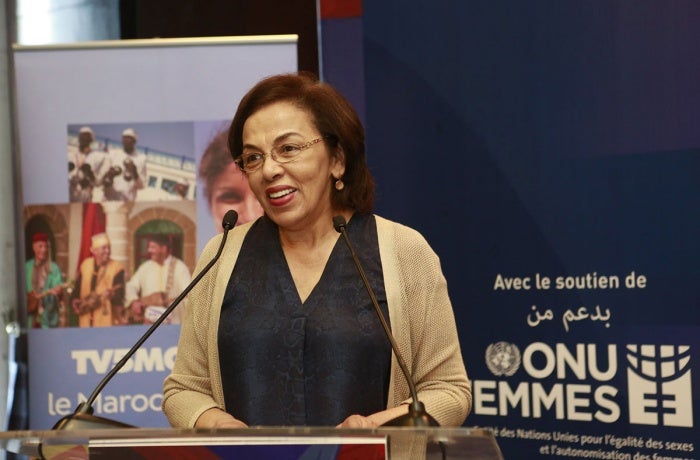In the words of Salma*: “We, as women and girls, deserve better.”
Trigger warning: The following includes descriptions of gender-based violence.
Salma*, 26, a Lebanese mother of 3 girls, was 13 years old when she eloped with her 16-year-old next door neighbor. Looking to escape her abusive stepmother, she thought marriage would offer her liberty. Instead, it opened a door to further abuse and violence.
Growing up, both my father and stepmother mistreated me. I wanted to get out. I married my neighbor at the early age of 13. I thought that I loved him, and that he would protect me. I was wrong. I thought marriage was fun, a game played by two people in a big house with colorful furniture. I had my first daughter at the age of 14 and my other two daughters before I turned 18.
Two years into our marriage, my husband started doing drugs and quit his job. That is when the first signs of abuse began to appear. He forced me to beg on the streets. He would punch me until I bruised, and spent the family income on drugs. In an outburst of anger, he would even flip the dinner table over our heads.
One day he held me at gunpoint inside the house and in front of our children. I didn’t care if he shot me. Death was my only way out. Thankfully he missed, and the bullet went through the wall, not harming anyone.
A friend told me that KAFA [a Lebanese civil society organization] was providing support to survivors of violence and that they could help me. At first, I was doubtful and also desperate. I come from a big tribe-like family, where traditions encourage men to hit their wives if they ‘misbehaved.’ I often heard: “It’s okay for your husband to hit you. What did you do to upset him? It’s probably your fault”.
Although I did not believe that anyone could help me, I reached out to KAFA. They provided me with a mobile phone and instructed me to hide it and use it if threatened. The first thing I asked them was: “Will you tell anyone?” They reassured me that they would protect my identity and safety. For the first time in my life, I felt hopeful.
A few days later, I told my husband I was taking the kids to school. We left with nothing but the clothes on our backs and a few legal documents. We ran as fast as we could until we reached the KAFA center. They immediately provided us shelter, assigned us a lawyer and provided us with therapy.
The divorce and child custody legal battles were difficult because of Lebanon’s complicated sectarian personal status laws, but with the support of KAFA I obtained divorce seven months ago and was granted custody of my three daughters. We now live in a modest apartment in Beirut—I work as a caregiver for an elderly couple, and my children go to school. It may not be a lot, but I feel the happiest I could ever be.
Only three years ago, I would have never thought I would be here, feeling strong, proud and positive about the future. My family abandoned me following the divorce. Leaving my husband’s house is not acceptable and is shameful in our society. But I don’t care; I see myself as the strongest woman in my community. I may have lost my family, but I gained freedom and justice for my daughters, which is all that matters.
I tell all women, do not be scared. Raise your voice and seek help. Even if it seems impossible, there is always a way out. We must stand together and empower each other to get out of toxic relationships. We, as women and girls, deserve better.









